New Henry Moore exhibition This Living Hand 'encourages touch again'
- Published
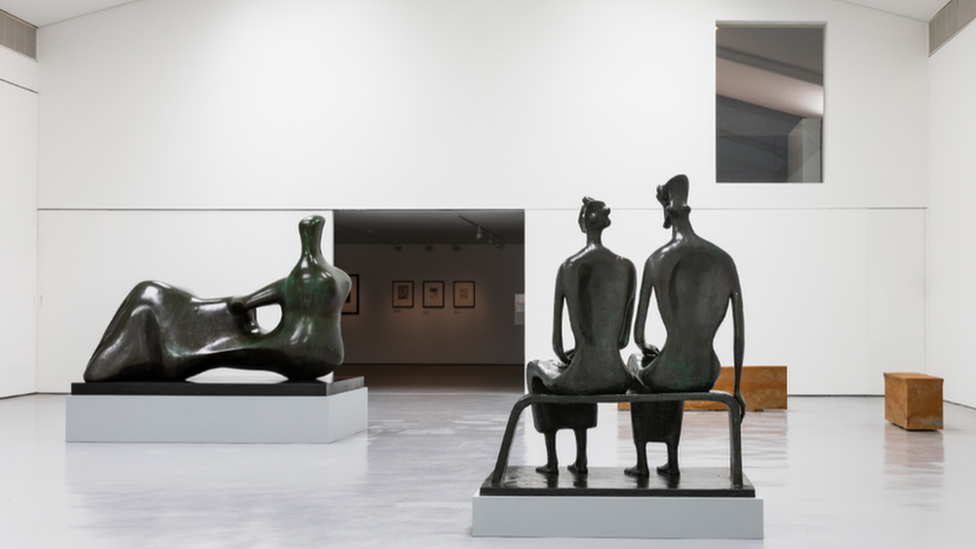
The This Living Hand exhibition includes the bronze King and Queen 1952-53 and Reclining Figure: Hand (1979)
Organisers of a delayed Henry Moore exhibition which encourages visitors to touch the sculptures say the display has "taken on a whole new meaning".
This Living Hand, at the late sculptor's studios in Hertfordshire, was supposed to open in March 2020.
Curator Edmund de Waal said a year ago the display exploring the role of touch and iconography of the hand in Moore's work would have been "interesting".
But this year, just being able to touch something "will be emotional", he said.
Artist and author Mr de Waal has now made handwashing part of the art by creating a new sculpture where people can wash their hands.
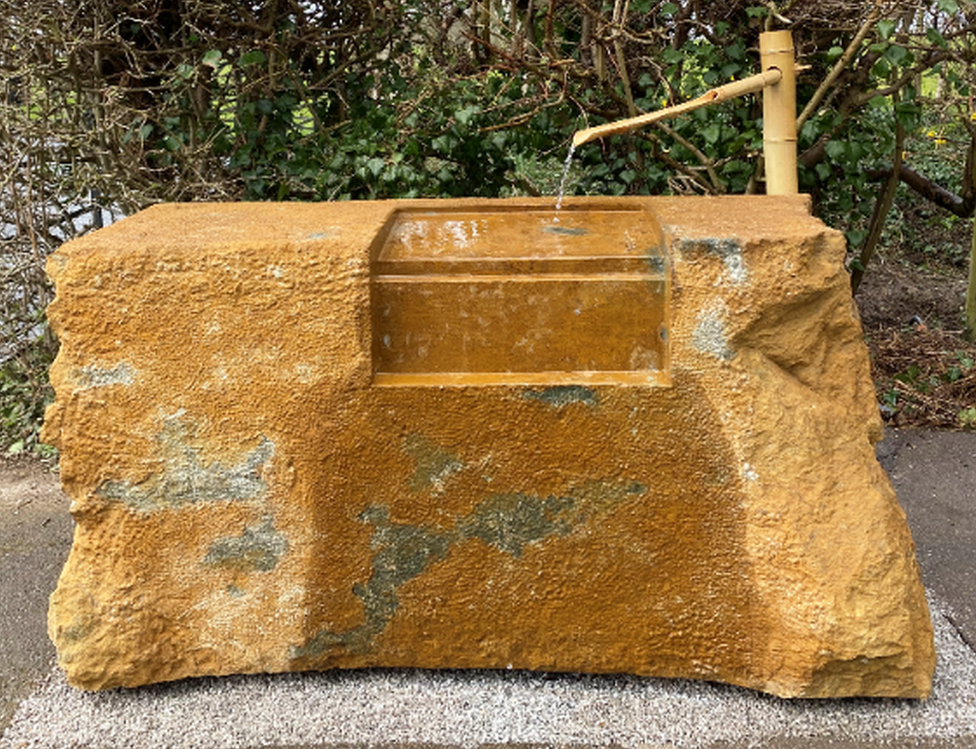
Edmund de Waal has made Stone for Two Hands and Water, based on a Japanese tsukubai - a washbasin provided at the entrance to a holy place for visitors to purify themselves
Renowned for his semi-abstract monumental bronzes, Moore (1898-1986) moved to Perry Green, near Much Hadham, in September 1940 and stayed there for the rest of his life.
When the new exhibition opens at the studios on 19 May, two days after the next stage of restrictions being eased in England, external, This Living Hand will present sculptures and objects which visitors will be invited to touch, as well as items charting Moore's interest in the hand as a subject, including the bronze figures King and Queen (1952-53) and Reclining Figure: Hand (1979).
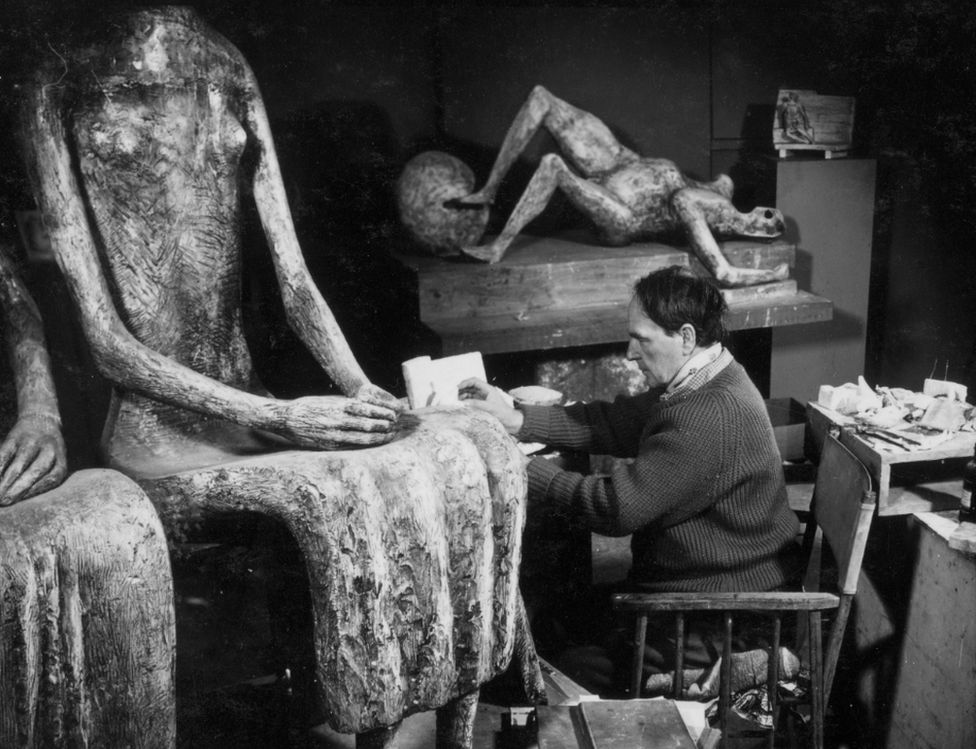
The Henry Moore Studios and Gardens at Perry Green was his work place and family home
Mr de Waal said when he curated the exhibition over 18 months ago, he thought that being able to touch these particular sculptures "for the first time ever" would be "an amazing moment" but this year "our hands and our experience of touch have taken on a whole new meaning".
"To be able to invite people to encounter Moore's sculptures through touch is now even more extraordinary," he said.
"We are desperately saddened by the fact that we haven't been able to relate to the world through our hands and this brings back what it is to be a human being... It's a very significant thing to be able to do."
Mr de Waal has also made a stone washbasin based on a Japanese tsukubai, so visitors can wash their hands before entering the gallery.
"You are encouraged to wash your hands and enjoy it for the first time, not sanitising," he said.
"[Then] you can stop and pause in a beautiful place not in front of a screen. That's my aspiration for this show."
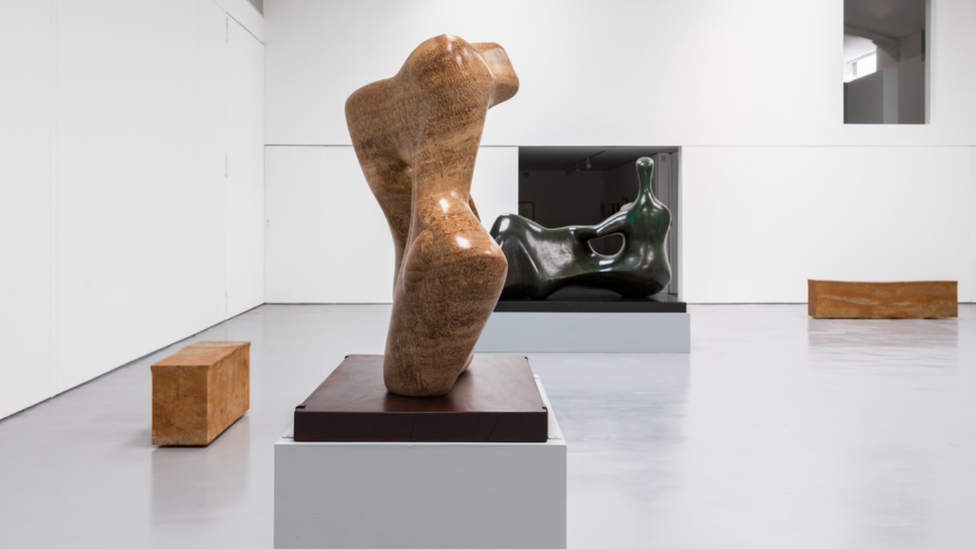
Mr de Waal said that by touching the figures, visitors would "find how he really understood how to make the sculpture"
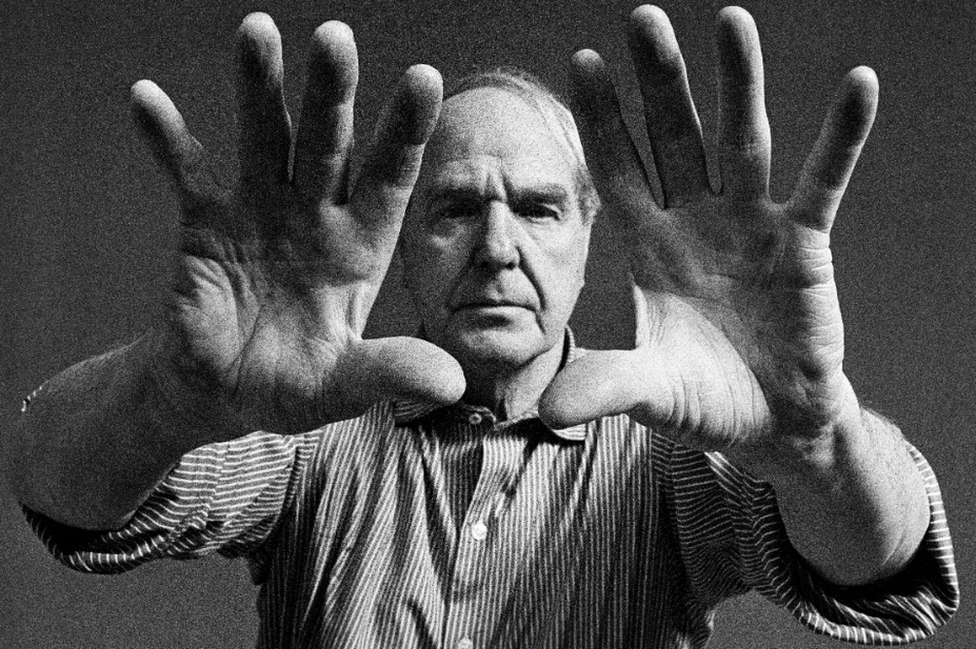
Henry Moore "believed in the importance of tactile experience in enjoying sculpture", said Mr de Waal

Find BBC News: East of England on Facebook, external, Instagram, external and Twitter, external. If you have a story suggestion email eastofenglandnews@bbc.co.uk, external